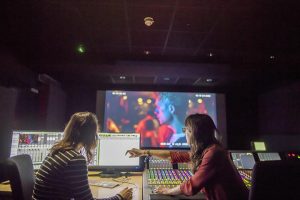 The role and social importance of TV and film during this pandemic has been much commented on. But how healthy is this industry? The good news is that this sector has been expanding at more than three times the rate of the wider economy, generating an annual trade surplus of almost £1 billion. The less good news is that this expansion has been at the expense of its most valuable resource – its skilled workforce. The preliminary report from our State of Play survey, undertaken shortly before Christmas and published today (11 January 2021) contains some shocking revelations. The picture to emerge is one of an industry rife with unfair recruitment practices, a chronic lack of diversity, poor management, lack of professional development opportunities, entry-level exploitation (including unpaid work), mental health issues, and susceptibility to a culture of bullying… The list is a long and depressing one. As one participant told us:
The role and social importance of TV and film during this pandemic has been much commented on. But how healthy is this industry? The good news is that this sector has been expanding at more than three times the rate of the wider economy, generating an annual trade surplus of almost £1 billion. The less good news is that this expansion has been at the expense of its most valuable resource – its skilled workforce. The preliminary report from our State of Play survey, undertaken shortly before Christmas and published today (11 January 2021) contains some shocking revelations. The picture to emerge is one of an industry rife with unfair recruitment practices, a chronic lack of diversity, poor management, lack of professional development opportunities, entry-level exploitation (including unpaid work), mental health issues, and susceptibility to a culture of bullying… The list is a long and depressing one. As one participant told us:
“I’m leaving the industry after twenty years. Had enough of bad practices. e.g. Bullying execs, relentless criticism, toxic working environments, stress, long working hours, not feeling valued, bad effect on my own mental health. No career development possibilities, no security.”
More than a third of our respondents told us they would have chosen differently had they known at the start of their career what they now know. It’s a far cry from the more familiar narrative about the joys of being creative, and work associated with self-actualisation. A summary of these findings has been published by Broadcast today.
None of this will come as much of a shock to scholars in the field of media industry studies (or indeed those of the Creative Industries more broadly). The past decade has seen a steady flow of research suggesting that all is not well. What has changed since the arrival of Covid-19, is that people are now seem to be much more willing to talk about it. For a long time there has been a reluctance to discuss these systemic issues outside the academic community, and a tendency to dismiss them as ‘just the way the industry works’. The publication of this report comes at a time when many in the industry are finally asking the question ‘why does it have to be the way the industry works?’ That makes it an exciting time for media industry scholars to be contributing to the debate.
The State of Play survey is a collaboration between BU’s Faculty of Media and Communication, the industry union Bectu, and the professional association Viva La PD. Bectu and Viva La PD are currently engaged in crucial discussions with major broadcasters, streamers and production companies, for which this research will provide critical insight.
The State of Play preliminary report is available here.
 This week sees the launch of
This week sees the launch of 










 Second NIHR MIHERC meeting in Bournemouth this week
Second NIHR MIHERC meeting in Bournemouth this week Dr. Ashraf cited on ‘Modest Fashion’ in The Guardian
Dr. Ashraf cited on ‘Modest Fashion’ in The Guardian NIHR-funded research launches website
NIHR-funded research launches website MSCA Postdoctoral Fellowships 2025 Call
MSCA Postdoctoral Fellowships 2025 Call ERC Advanced Grant 2025 Webinar
ERC Advanced Grant 2025 Webinar Horizon Europe Work Programme 2025 Published
Horizon Europe Work Programme 2025 Published Horizon Europe 2025 Work Programme pre-Published
Horizon Europe 2025 Work Programme pre-Published Update on UKRO services
Update on UKRO services European research project exploring use of ‘virtual twins’ to better manage metabolic associated fatty liver disease
European research project exploring use of ‘virtual twins’ to better manage metabolic associated fatty liver disease